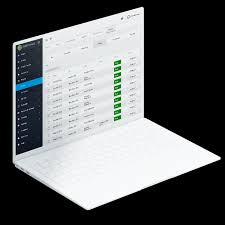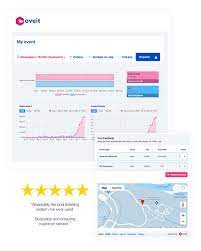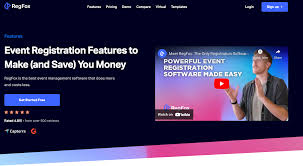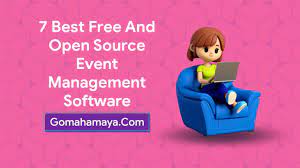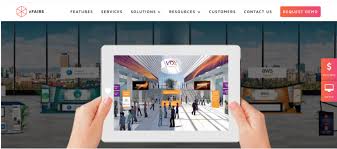The Future of Events: Virtual Conference Software Platforms
In today’s digital age, virtual conferences have become increasingly popular as a cost-effective and convenient way to host events. With the rise of virtual conference software platforms, event organizers can now create engaging and interactive online events that rival traditional in-person conferences.
Virtual conference software platforms offer a wide range of features to enhance the attendee experience. From customizable virtual event spaces to interactive networking tools, these platforms provide a dynamic environment for participants to connect and collaborate.
One key advantage of virtual conference software platforms is their ability to reach a global audience. Attendees from around the world can join an event with just a click of a button, eliminating the need for travel and accommodation expenses.
Furthermore, virtual conferences offer greater flexibility for both organizers and attendees. With on-demand content and virtual exhibition halls, participants can access information at their own pace and convenience.
As technology continues to advance, virtual conference software platforms will only become more sophisticated, offering new opportunities for engagement and interaction. Whether you’re hosting a small webinar or a large-scale conference, virtual event platforms are shaping the future of events in exciting ways.
Top 5 Benefits of Using Virtual Conference Software Platforms
- Cost-effective alternative to traditional in-person events
- Global reach, allowing attendees from anywhere to participate
- Enhanced networking opportunities through interactive tools
- Flexibility with on-demand content for attendees’ convenience
- Scalable options for events of all sizes, from webinars to large conferences
7 Drawbacks of Virtual Conference Software Platforms: From Technical Issues to Limited Networking
- Technical glitches may disrupt the event.
- Limited opportunities for spontaneous networking and social interactions.
- Potential challenges in engaging attendees without physical presence.
- Difficulty in ensuring data security and privacy during online events.
- Dependence on stable internet connection for seamless participation.
- Lack of tactile experiences that can be achieved in physical events.
- Possible limitations in audience engagement and interaction compared to face-to-face meetings.
Cost-effective alternative to traditional in-person events
Virtual conference software platforms offer a cost-effective alternative to traditional in-person events by eliminating the need for expensive venue rentals, travel expenses, and accommodation costs. Organizers can host virtual conferences at a fraction of the cost, making it a more budget-friendly option without compromising on the quality of the event experience. This cost-saving benefit allows businesses and organizations to reallocate their resources towards other aspects of the event, such as marketing efforts or enhancing attendee engagement, ultimately maximizing their return on investment.
Global reach, allowing attendees from anywhere to participate
One of the key advantages of virtual conference software platforms is their ability to provide a global reach, enabling attendees from anywhere in the world to participate in events. This feature eliminates geographical barriers and allows individuals from diverse locations to join conferences, webinars, and trade shows with ease. By fostering a more inclusive and accessible environment, virtual conference software platforms open up new opportunities for networking, collaboration, and knowledge sharing on a global scale.
Enhanced networking opportunities through interactive tools
Virtual conference software platforms offer enhanced networking opportunities through interactive tools, revolutionizing how attendees connect and collaborate. With features such as virtual chat rooms, one-on-one video meetings, and AI-powered matchmaking, participants can engage with peers in meaningful ways that mimic real-life interactions. These tools not only facilitate professional networking but also create a sense of community and engagement among attendees, making virtual conferences a valuable platform for building relationships and expanding one’s professional network.
Flexibility with on-demand content for attendees’ convenience
One significant advantage of virtual conference software platforms is the flexibility they offer with on-demand content, catering to attendees’ convenience. Participants can access presentations, sessions, and resources at their preferred time, allowing them to engage with the event at their own pace. This feature not only enhances the overall attendee experience but also ensures that valuable information is readily available to participants whenever they need it.
Scalable options for events of all sizes, from webinars to large conferences
Virtual conference software platforms offer scalable options for events of all sizes, making them a versatile solution for various needs. Whether you are planning a small webinar with a handful of participants or a large conference with thousands of attendees, these platforms can accommodate your requirements. The flexibility to scale up or down ensures that organizers can customize their virtual events to suit the size and scope of their audience, providing a seamless and tailored experience for all participants.
Technical glitches may disrupt the event.
Technical glitches may disrupt the event and cause inconvenience to both organizers and attendees. From connectivity issues to software malfunctions, unexpected technical problems can interrupt presentations, hinder networking opportunities, and impact the overall flow of the virtual conference. Participants may experience frustration and disconnection if they encounter difficulties accessing content or engaging in discussions due to technical issues. Ensuring a smooth and seamless virtual conference experience requires proactive troubleshooting measures and contingency plans to address potential disruptions effectively.
Limited opportunities for spontaneous networking and social interactions.
One significant drawback of virtual conference software platforms is the limited opportunities for spontaneous networking and social interactions. Unlike traditional in-person events where attendees can easily strike up conversations during breaks or networking sessions, virtual conferences often lack the organic and informal interactions that can lead to meaningful connections. The structured nature of online events can make it challenging for participants to engage in impromptu discussions or build relationships outside of scheduled activities, potentially hindering the overall networking experience and sense of community that is typically fostered in face-to-face settings.
Potential challenges in engaging attendees without physical presence.
One significant challenge of virtual conference software platforms is the difficulty in engaging attendees without the physical presence that traditional in-person events offer. Without face-to-face interactions and the energy of a live event, maintaining audience engagement can be a struggle. Attendees may face distractions at home or lack the personal connections that come from networking in person. Organizers must find innovative ways to keep participants engaged through interactive features, compelling content, and opportunities for virtual networking to overcome this hurdle and ensure a successful virtual conference experience.
Difficulty in ensuring data security and privacy during online events.
One significant drawback of virtual conference software platforms is the challenge of ensuring data security and privacy during online events. With sensitive information being shared and stored digitally, there is an increased risk of data breaches and cyber threats. Organizers must implement robust security measures to protect attendee data, such as encryption protocols and secure login procedures. However, despite these efforts, the potential for security vulnerabilities remains a concern, highlighting the importance of prioritizing data security when utilizing virtual conference software platforms.
Dependence on stable internet connection for seamless participation.
A significant drawback of virtual conference software platforms is the reliance on a stable internet connection for seamless participation. Inconsistent or slow internet connectivity can disrupt the attendee experience, leading to audio and video lags, dropped calls, and difficulty accessing content. This dependency on internet reliability poses a challenge for both organizers and participants, especially in areas with limited access to high-speed internet. As virtual events become more prevalent, addressing this issue becomes crucial to ensure a smooth and engaging conference experience for all involved.
Lack of tactile experiences that can be achieved in physical events.
One significant drawback of virtual conference software platforms is the absence of tactile experiences that are inherent in physical events. In traditional conferences, attendees have the opportunity to interact physically with products, materials, and other participants, fostering a more immersive and sensory-rich experience. The lack of physical touch and presence in virtual events can diminish the depth of engagement and connection that can be achieved in face-to-face interactions, potentially impacting the overall event experience for participants.
Possible limitations in audience engagement and interaction compared to face-to-face meetings.
Virtual conference software platforms, while offering numerous benefits, may present limitations in audience engagement and interaction when compared to face-to-face meetings. The lack of physical presence and non-verbal cues in virtual settings can sometimes hinder the depth of connection between participants. Without the spontaneous interactions that occur in face-to-face meetings, such as impromptu conversations or networking opportunities during breaks, virtual conferences may struggle to replicate the same level of engagement. Additionally, technical issues or distractions in the online environment can disrupt the flow of communication and diminish the overall interactive experience for attendees.



